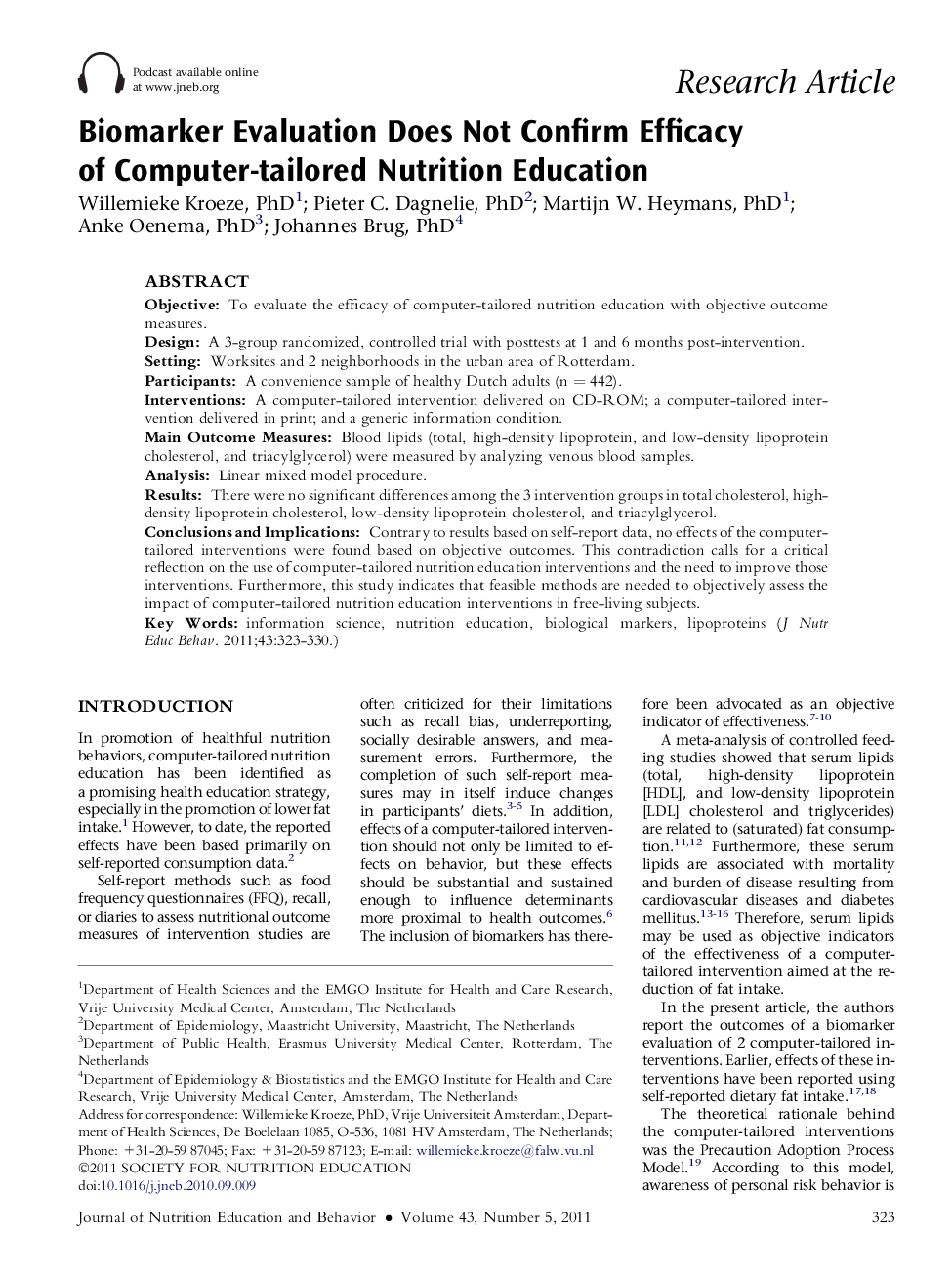| Article ID | Journal | Published Year | Pages | File Type |
|---|---|---|---|---|
| 362374 | Journal of Nutrition Education and Behavior | 2011 | 8 Pages |
ObjectiveTo evaluate the efficacy of computer-tailored nutrition education with objective outcome measures.DesignA 3-group randomized, controlled trial with posttests at 1 and 6 months post-intervention.SettingWorksites and 2 neighborhoods in the urban area of Rotterdam.ParticipantsA convenience sample of healthy Dutch adults (n = 442).InterventionsA computer-tailored intervention delivered on CD-ROM; a computer-tailored intervention delivered in print; and a generic information condition.Main Outcome MeasuresBlood lipids (total, high-density lipoprotein, and low-density lipoprotein cholesterol, and triacylglycerol) were measured by analyzing venous blood samples.AnalysisLinear mixed model procedure.ResultsThere were no significant differences among the 3 intervention groups in total cholesterol, high-density lipoprotein cholesterol, low-density lipoprotein cholesterol, and triacylglycerol.Conclusions and ImplicationsContrary to results based on self-report data, no effects of the computer-tailored interventions were found based on objective outcomes. This contradiction calls for a critical reflection on the use of computer-tailored nutrition education interventions and the need to improve those interventions. Furthermore, this study indicates that feasible methods are needed to objectively assess the impact of computer-tailored nutrition education interventions in free-living subjects.
